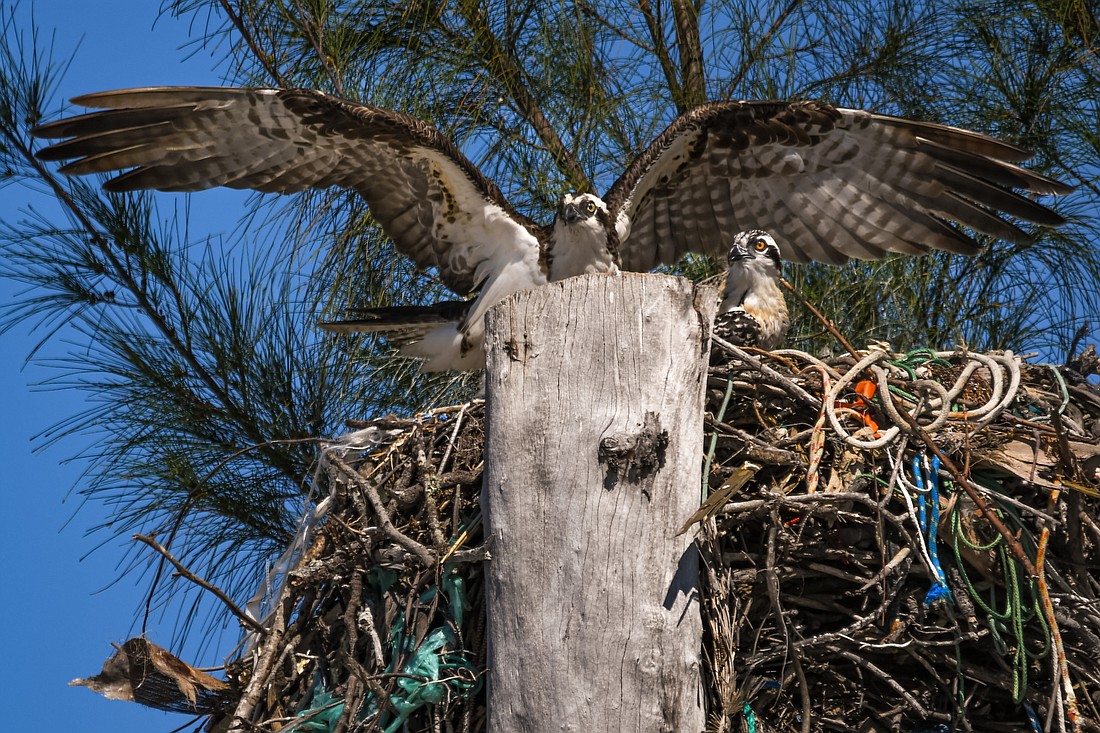- January 28, 2026
-
-
Loading

Loading

With their sweet call and piercing yellow-eyed glare, ospreys are found on every continent except Antarctica, and many live in Florida year-round. The only raptors that almost exclusively eat fish, ospreys can rotate their fourth toe backwards, which is very useful for catching and grasping their slippery catch.
Nesting takes place from December to June. For their nests, which are bulky arrangements of sticks and other materials, ospreys prefer a treetop or a dead tree near water, with a 360-degree view of the surrounding area. When natural options are limited, they'll nest on artificial platforms, utility poles, channel markers or even, as seen locally, traffic lights and bridges. They often return yearly to the same nest, adding material to fortify and enhance it.
Ospreys are highly sensitive to changes in the health of our aquatic ecosystems. And importantly, their health reflects the health of fish, a food source we share. In the mid-20th century, ospreys suffered severe pesticide-related population declines. They recovered when DDT was banned. Mercury, found in our waterways, which can cause both reproductive and cognitive issues, is still a concern. And, a recent study by University of Central Florida demonstrated for the first time the presence of micro-plastics in birds of prey in Florida, including ospreys.
To keep plastic and other toxins out of our environment and help protect our wildlife, we can remove improperly disposed plastics from public spaces and landfills. As clothes washing is a contributor to micro-plastics pollution, when possible, consider buying natural fabrics instead of plastic-based ones. And when caring for your landscape, please favor organic solutions, rather than using toxic chemicals.